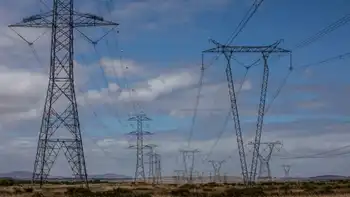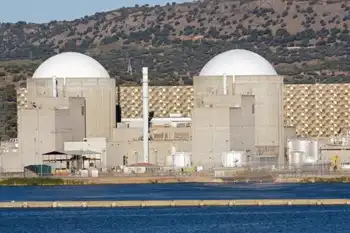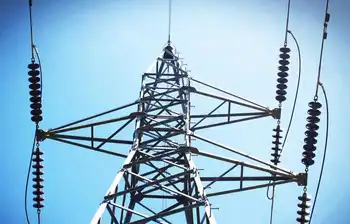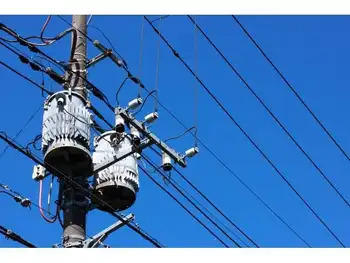By The Seattle Times
NFPA 70e Training
Our customized live online or in‑person group training can be delivered to your staff at your location.

- Live Online
- 6 hours Instructor-led
- Group Training Available
It's the first time federal officials have put a dollar amount on profits the now-defunct energy trader collected by using criminal procedures between 1997 and 2003. Federal Energy Regulatory Commission (FERC) staffers testified in Washington, D.C., before an administrative-law judge who will determine in October whether refunds are due to West Coast utilities such as Washington's Snohomish County Public Utility District, Seattle City Light and Tacoma Power. Seattle City Light says it is owed more than $80 million, while Tacoma Power says it is owed $10 million. The Snohomish PUD says it is owed close to $40 million, but more important for the state's largest public utility is litigation filed by Enron to collect a $122 million termination fee after the PUD ended its nine-year contract with the energy trader over news of the company's corrupt dealings. Enron is seeking the money to pacify creditors in its ongoing bankruptcy proceedings. The company is trying to collect $800 million in contract fees from utilities nationwide. If an administrative-law judge agrees refunds are due, then it's probable that FERC would agree a termination fee would only equal more illegal profits from the PUD, utility officials say. "This is encouraging, but we're still a long way from there," said PUD general counsel Mike Gianunzio. "Our mission is not to have to pay Enron another dime of these fraudulent, criminal profits that they've gotten." Enron, however, will have a chance to dispute the profit calculation stated during recent testimony. Company officials said yesterday they're reviewing the testimony. Analysts say they expect Enron to present a smaller figure for profits during that time frame. The PUD contract was canceled in 2001. Pressure to issue larger refunds to the West Coast came last May when the PUD publicly released transcripts of Enron day traders laughing and joking about how they were manipulating market prices while blackouts and rolling brownouts persisted in California. During the seven-year period, Enron is accused of using several schemes with colorful names such as "deathstar" and "ricochet" to jack up energy prices. Members of Washington's congressional delegation yesterday said FERC is four years too late. "More than four years after we were saying this [that Enron broke the law], staff is recommending that Enron was violating the rules," said Angela Becker-Dippmann, a spokeswoman for Democratic Sen. Maria Cantwell. "Is this another shell game?" Rep. Jay Inslee, D-Bainbridge Island, said even if FERC approves refunds, it's uncertain whether money will be available. Even PUD officials say they won't likely be pushing hard for refunds if they're successful in ending litigation. "In an ideal world, you'd press to get money out of them," said PUD attorney Eric Christensen. "But in the bankruptcy world, any claim is likely to be paid out at 25 cents to the dollar, so you can't really press forward with such expensive litigation."
Federal Energy Regulatory Commission (FERC) staffers testified in Washington, D.C., before an administrative-law judge who will determine in October whether refunds are due to West Coast utilities such as Washington's Snohomish County Public Utility District, Seattle City Light and Tacoma Power.
Seattle City Light says it is owed more than $80 million, while Tacoma Power says it is owed $10 million.
The Snohomish PUD says it is owed close to $40 million, but more important for the state's largest public utility is litigation filed by Enron to collect a $122 million termination fee after the PUD ended its nine-year contract with the energy trader over news of the company's corrupt dealings.
Enron is seeking the money to pacify creditors in its ongoing bankruptcy proceedings. The company is trying to collect $800 million in contract fees from utilities nationwide.
If an administrative-law judge agrees refunds are due, then it's probable that FERC would agree a termination fee would only equal more illegal profits from the PUD, utility officials say.
"This is encouraging, but we're still a long way from there," said PUD general counsel Mike Gianunzio. "Our mission is not to have to pay Enron another dime of these fraudulent, criminal profits that they've gotten."
Enron, however, will have a chance to dispute the profit calculation stated during recent testimony. Company officials said yesterday they're reviewing the testimony. Analysts say they expect Enron to present a smaller figure for profits during that time frame. The PUD contract was canceled in 2001.
Pressure to issue larger refunds to the West Coast came last May when the PUD publicly released transcripts of Enron day traders laughing and joking about how they were manipulating market prices while blackouts and rolling brownouts persisted in California. During the seven-year period, Enron is accused of using several schemes with colorful names such as "deathstar" and "ricochet" to jack up energy prices.
Members of Washington's congressional delegation yesterday said FERC is four years too late. "More than four years after we were saying this [that Enron broke the law], staff is recommending that Enron was violating the rules," said Angela Becker-Dippmann, a spokeswoman for Democratic Sen. Maria Cantwell. "Is this another shell game?"
Rep. Jay Inslee, D-Bainbridge Island, said even if FERC approves refunds, it's uncertain whether money will be available.
Even PUD officials say they won't likely be pushing hard for refunds if they're successful in ending litigation.
"In an ideal world, you'd press to get money out of them," said PUD attorney Eric Christensen. "But in the bankruptcy world, any claim is likely to be paid out at 25 cents to the dollar, so you can't really press forward with such expensive litigation."











